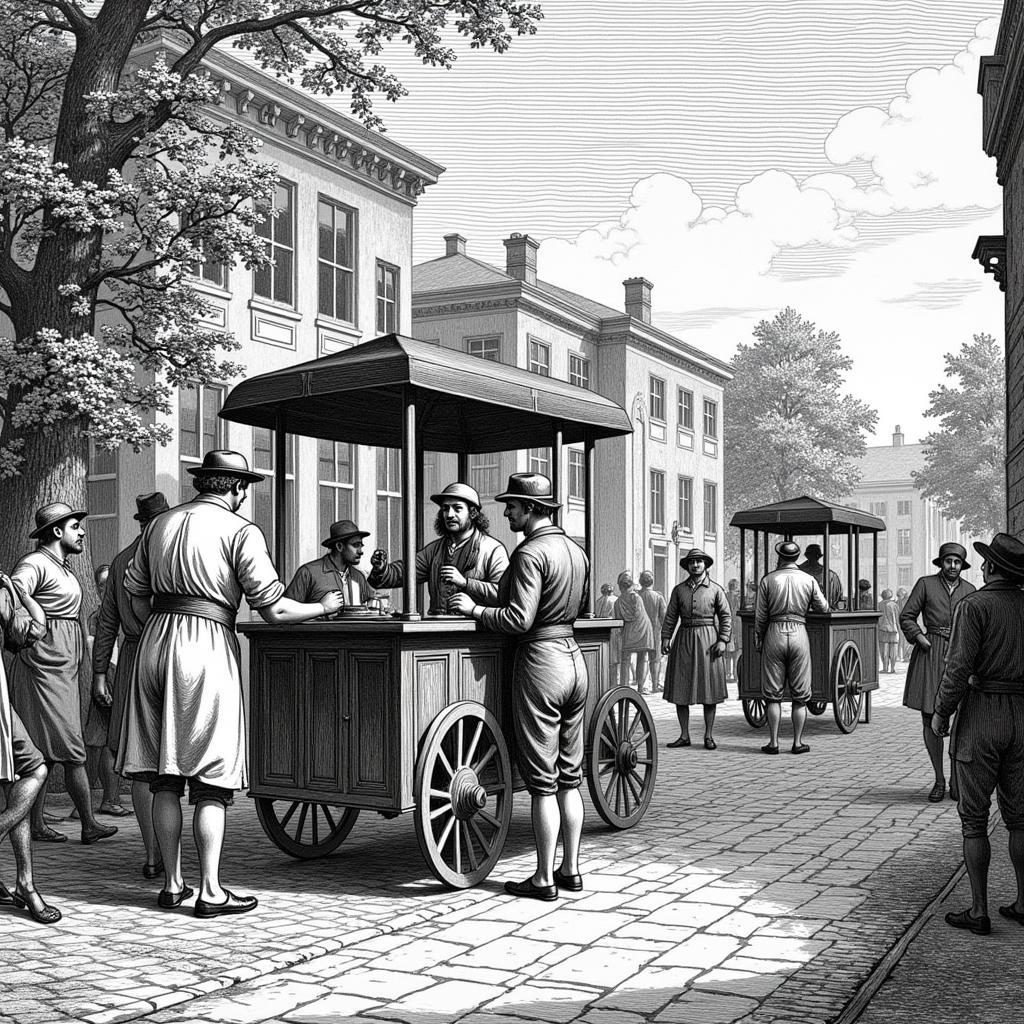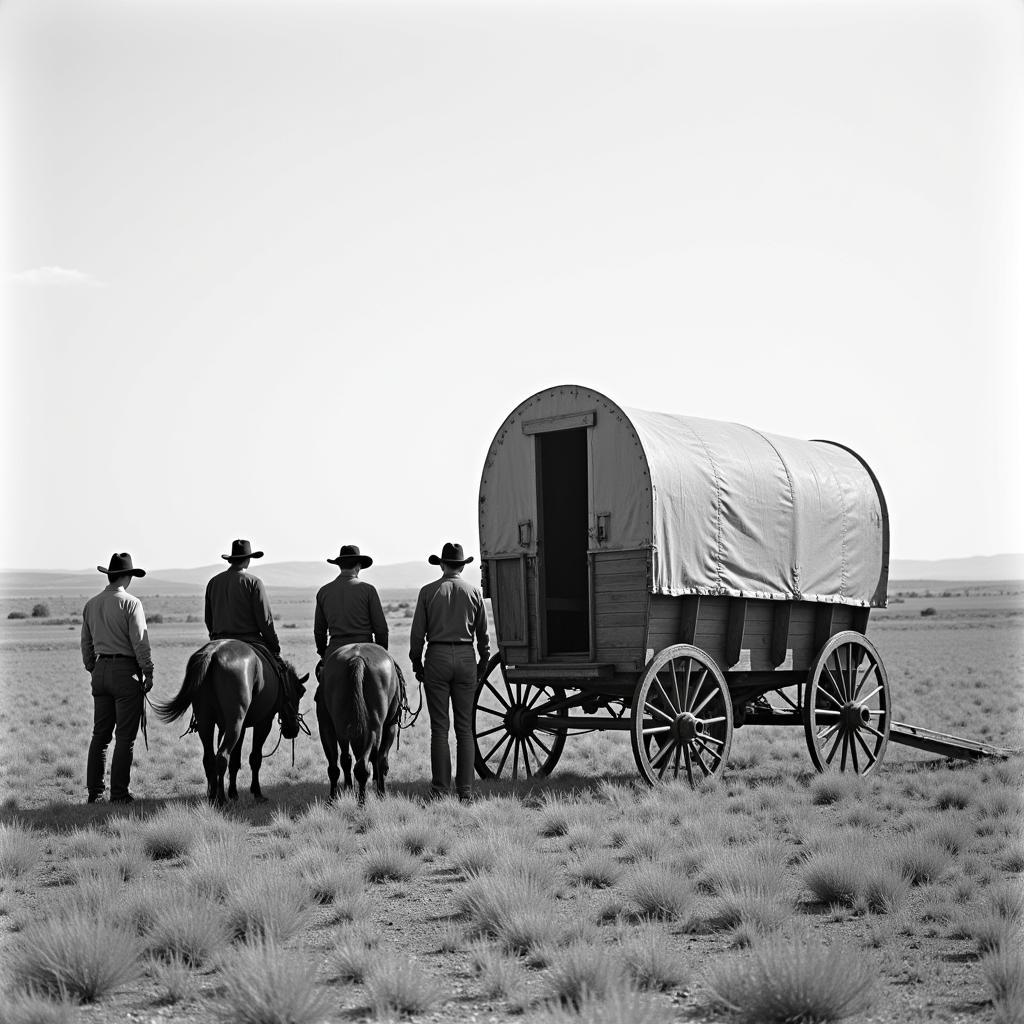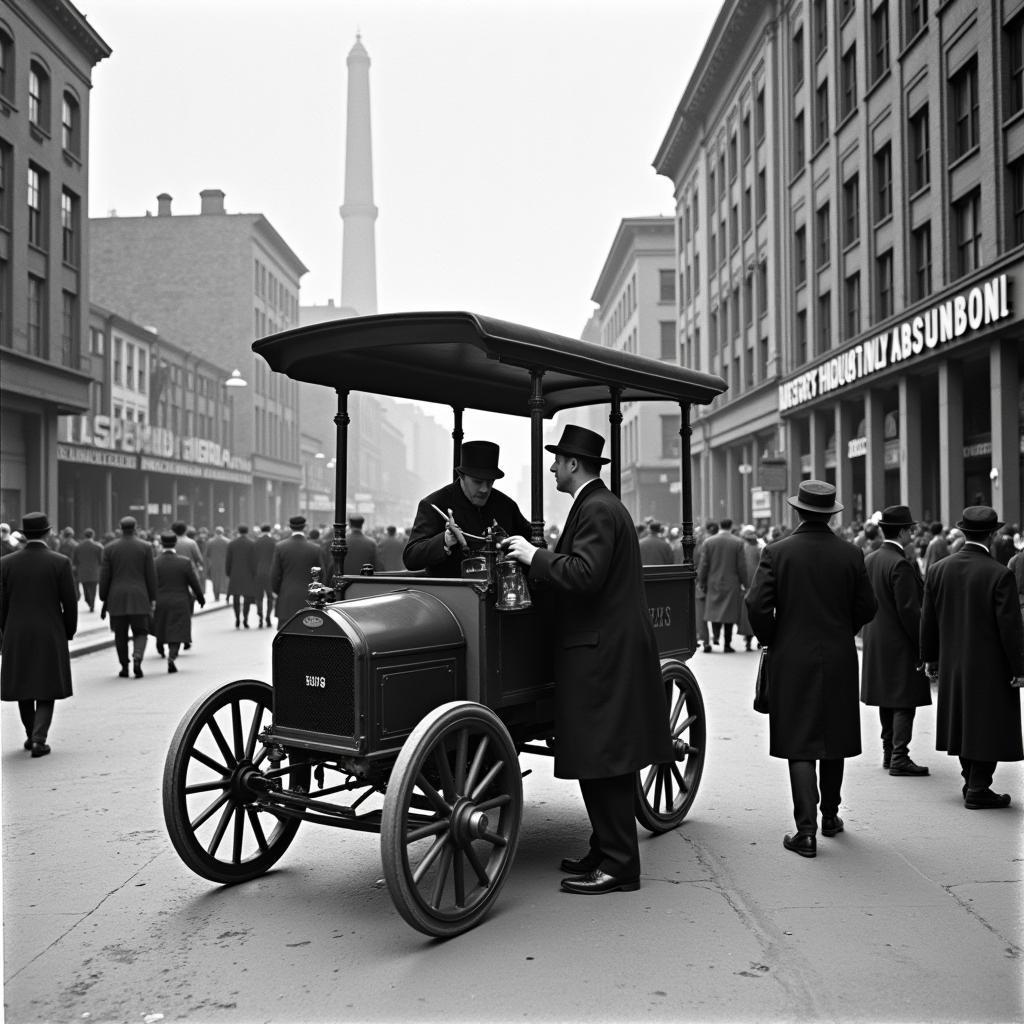The food truck industry, a global phenomenon enjoyed by millions, has a rich and surprising history. What we know today as a haven for gourmet sandwiches, innovative tacos, or decadent desserts on wheels, started from humble beginnings. This article delves into the fascinating Food Truck History Timeline, tracing its evolution from simple origins to the culinary revolution it is today.
The Early Seeds of a Revolution: 17th Century and Beyond
 Early Food Vendors in America
Early Food Vendors in America
The earliest traces of mobile food vending can be linked back to the 17th century. In bustling cities like New York, street vendors sold food from pushcarts to construction workers and laborers. These early entrepreneurs provided simple, affordable meals like oysters, fruit, and coffee.
Chuck Wagons and the Wild West: Feeding Cowboys on the Move (1800s)
 Chuck Wagon on the American Frontier
Chuck Wagon on the American Frontier
The mid-1800s saw the rise of “chuck wagons” on the American frontier. These mobile kitchens served cowboys who drove cattle across vast distances. Outfitted with storage space and basic cooking equipment, chuck wagons provided hearty, protein-rich meals that kept cowboys fueled on long journeys.
Lunch Wagons Emerge: Serving the Industrial Workforce (Late 1800s – Early 1900s)
 Vintage Lunch Wagon in Urban Setting
Vintage Lunch Wagon in Urban Setting
As the United States industrialized, lunch wagons became a common sight near factories and industrial areas. These mobile eateries offered affordable meals to factory workers, often featuring simple fare like sandwiches, soups, and pies. Lunch wagons were particularly popular in cities like New York, where they became an integral part of the urban culinary landscape.
From Roach Coaches to Gourmet Food Trucks: A Culinary Transformation (Mid-20th Century Onwards)
The term “roach coach,” coined in the mid-20th century, reflected the often unsanitary conditions of some mobile food vendors. However, things began to change in the late 20th and early 21st centuries.
Several factors contributed to the transformation of food trucks from basic food providers to gourmet culinary destinations:
- The Rise of Foodie Culture: Increased interest in diverse and high-quality food created a demand for more exciting and innovative dining options.
- The Economic Recession of 2008: The recession led many chefs to seek alternative avenues for their culinary skills, and food trucks provided a lower-cost entry point into the restaurant industry.
- Social Media’s Influence: Platforms like Twitter and Instagram allowed food truck owners to connect with customers directly, announce their locations, and build a loyal following.
The Modern Food Truck: A Celebration of Diversity and Innovation
Today, food trucks represent a vibrant and integral part of the culinary scene. From gourmet burgers and Korean tacos to artisanal ice cream and vegan delights, food trucks offer a diverse range of culinary experiences.
“Food trucks have democratized the restaurant industry,” says Chef Michael Reyes, owner of the award-winning food truck “Gourmet Grub.” “They allow chefs to experiment with new ideas, build a following organically, and share their passion for food with the community.”
Conclusion: The Future of Food on Wheels
The food truck history timeline showcases an industry constantly adapting and evolving. From their humble beginnings serving basic needs to their current status as culinary trendsetters, food trucks have come a long way. As food culture continues to embrace diversity, creativity, and accessibility, it’s clear that food trucks will continue to thrive and shape the culinary landscape for years to come.
For all your catering needs and to experience the evolution of food on wheels firsthand, contact Mina Cones Food at Phone Number: 02437655121, Email: minacones@gmail.com Or visit us at: 3PGH+8R9, ĐT70A, thôn Trung, Bắc Từ Liêm, Hà Nội, Việt Nam. Our dedicated customer service team is available 24/7 to assist you.